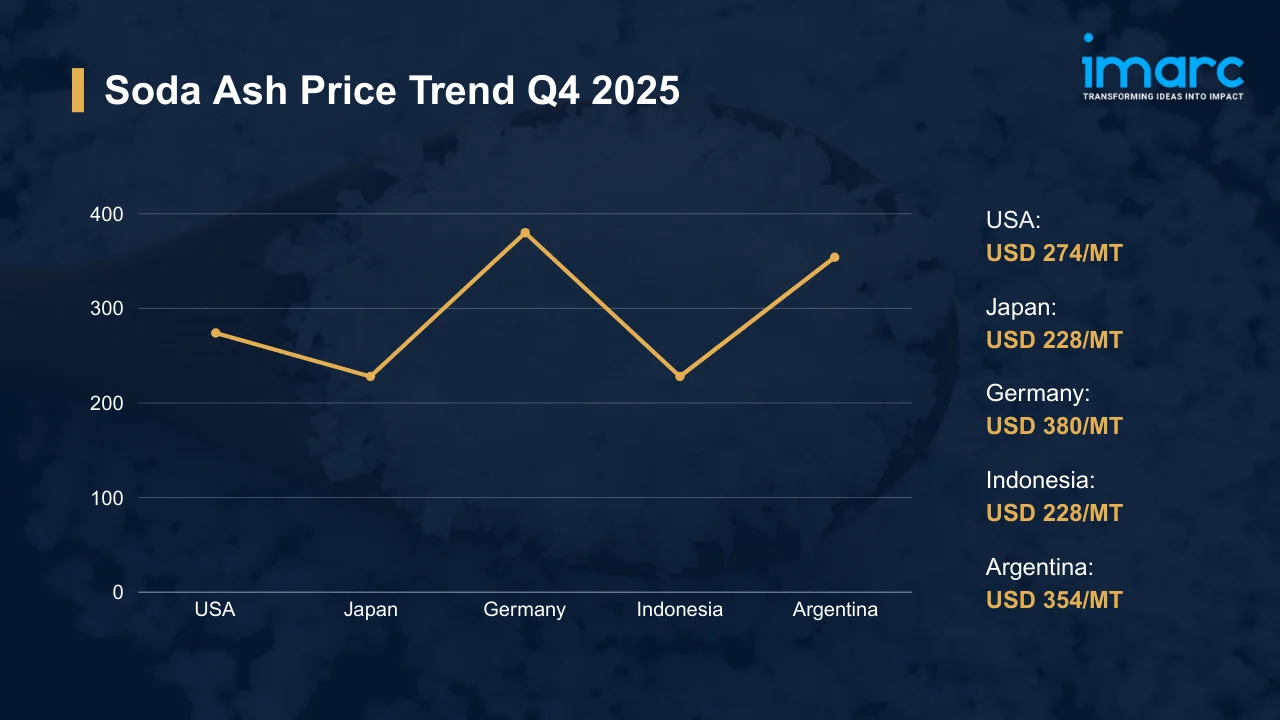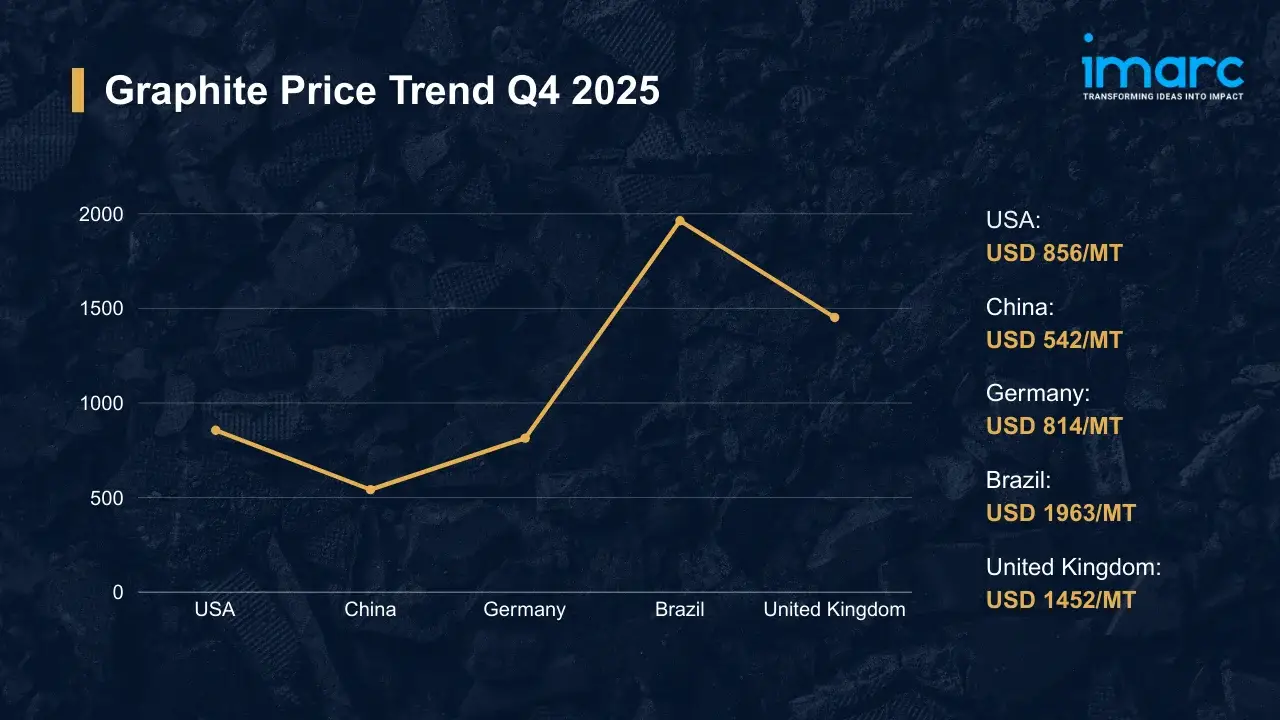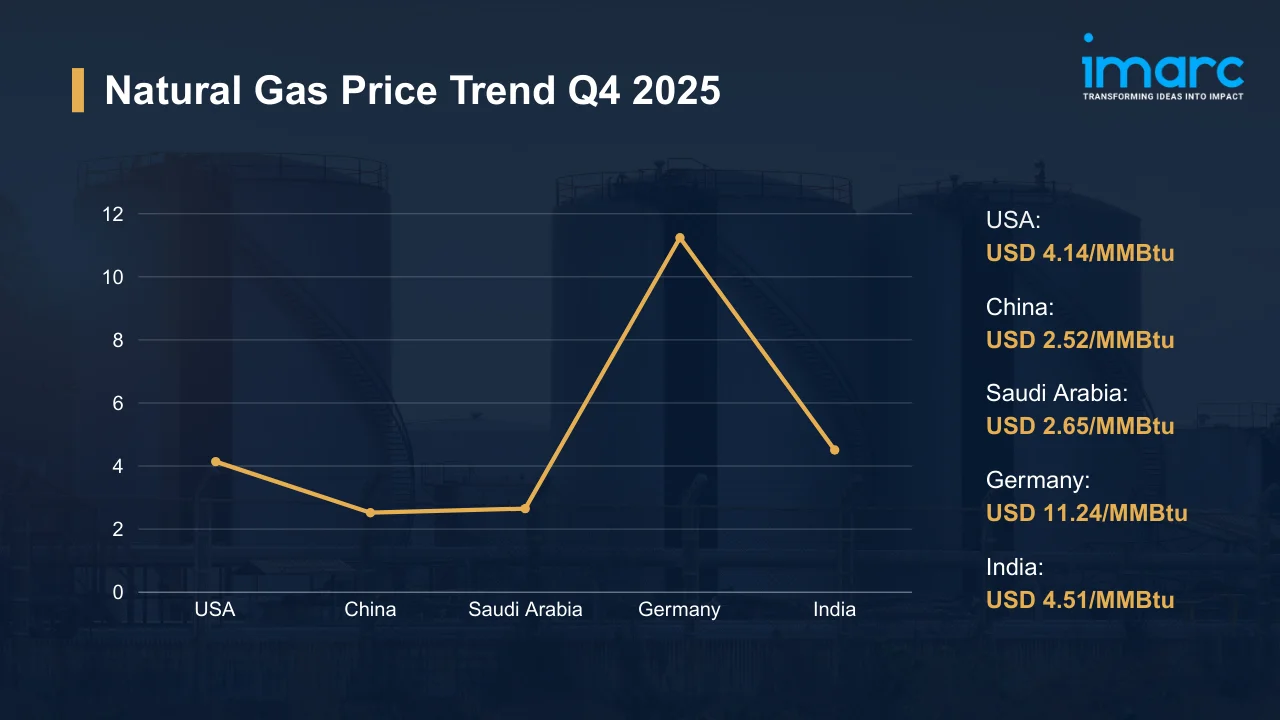Carbon Monoxide Prices in Focus: UK, Japan, India, Australia, and Indonesia Q2 2025
20-Aug-2025.webp)
The global carbon monoxide industry witnessed varied pricing patterns, influenced by feedstock market volatility, regulatory requirements, and shifting industrial demand. According to IMARC Group’s latest publication, Carbon Monoxide Price Trend, Index and Forecast Data Report 2025 Edition, which provides updated insights for Q2 2025, the market reflected evolving trends in energy costs, supply chain stability, and compliance frameworks across major economies. Key markets, including North America, Asia Pacific, and Europe, recorded distinct price levels by June 2025, highlighting the regional disparities in cost structures and market conditions.
Q2 2025 Carbon Monoxide Prices:
- UK: USD 294/MT
- Japan: USD 380/MT
- India: USD 436/MT
- Australia: USD 664/MT
- Indonesia: USD 595/MT
.webp)
To access real-time prices Request Sample
The current carbon monoxide prices across key regions underscore the material’s critical role in high-performance industries such as chemicals, metallurgy, and electronics, with sustained demand and cost-side pressures contributing to a stable to rising global price trend.
Key Regional Price Trends and Market Drivers:
UK
Carbon monoxide prices in the UK reached USD 294/MT in June 2025, driven by intermittent spikes in natural gas costs used for syngas production, combined with regulatory pressures and fluctuating industrial demand. Feedstock cost volatility continued to place upward pressure on production expenses.
Japan
In Japan, carbon monoxide prices stood at USD 380/MT during Q2 2025, influenced by high imported feedstock costs, unstable global energy markets, and stricter emissions control regulations. Supply chain bottlenecks and geopolitical tensions further elevated the production cost base.
India
India carbon monoxide prices reached USD 436/MT in June 2025, supported by competitive domestic supply and minimal export activity. Stringent handling and emissions regulations increased compliance costs, while demand growth remained stable yet cautious.
Australia
Carbon monoxide prices in Australia rose to USD 664/MT during Q2 2025, the highest among key markets, as producers faced elevated natural gas and hydrocarbon feedstock costs alongside rigorous regulatory compliance. Steady industrial demand maintained upward pricing pressure.
Indonesia
In Indonesia, carbon monoxide prices reached USD 595/MT in June 2025, with domestic feedstock costs moderated by government natural gas subsidies. However, maintenance schedules and operational disruptions in key production facilities limited supply availability.
Carbon Monoxide Industry Overview:
The global carbon monoxide market reached a value of USD 3.52 Billion in 2024 and is projected to grow to USD 4.75 Billion by 2033, expanding at a CAGR of 3.23% during 2025-2033. This steady growth reflects the material’s indispensable role in various high-performance industries, including chemicals, metallurgy, and electronics, where it serves as a critical feedstock for numerous industrial processes. The market outlook remains positive as demand resilience combines with evolving production technologies and diversified applications.
Some of the key factors contributing to this growth include the rising consumption of carbon monoxide in syngas production for chemical synthesis, its expanding use in metal refining, and growing adoption in advanced material processing. Additionally, heightened investments in industrial infrastructure, stringent regulatory requirements for cleaner production processes, and the increasing demand for high-purity gases in electronics manufacturing are further propelling market expansion.
Recent Market Trends and Industry Analysis:
Carbon monoxide plays a crucial role in high-performance industrial applications due to its versatility as a reactive gas and essential intermediate. It is extensively used in the chemical sector for producing acetic acid, methanol, and other organic compounds that support large-scale synthesis. In the electronics industry, ultra-pure carbon monoxide is in growing demand for semiconductor fabrication and advanced display manufacturing, particularly in countries with expanding production bases such as China, South Korea, and Japan. This trend is further supported by rising investments in electronics and high-purity gas infrastructure.
In addition to chemicals and electronics, the metallurgy and metal fabrication industries are major consumers of carbon monoxide, relying on it for ore reduction and refining processes in steel and non-ferrous metal production. Its role in these applications is reinforced by the steady growth of infrastructure and construction activities, especially in emerging markets. Advancements in gas purification and distribution technologies are also enabling more efficient and widespread use, supporting higher productivity, tighter process control, and sustained demand across global industries.
Strategic Forecasting and Analysis:
IMARC’s report incorporates forecasting models that project near-term price movements based on evolving trade policies, raw material supply, and technological trends. These tools enable businesses to mitigate risk, enhance sourcing strategies, and support long-term planning.
Key Features of the Report:
- Price Charts and Historical Data
- FOB and CIF Spot Pricing
- Regional Demand-Supply Assessments
- Port-Level Price Analysis
- Sector-Specific Demand and Supply Insights








.webp)




.webp)












